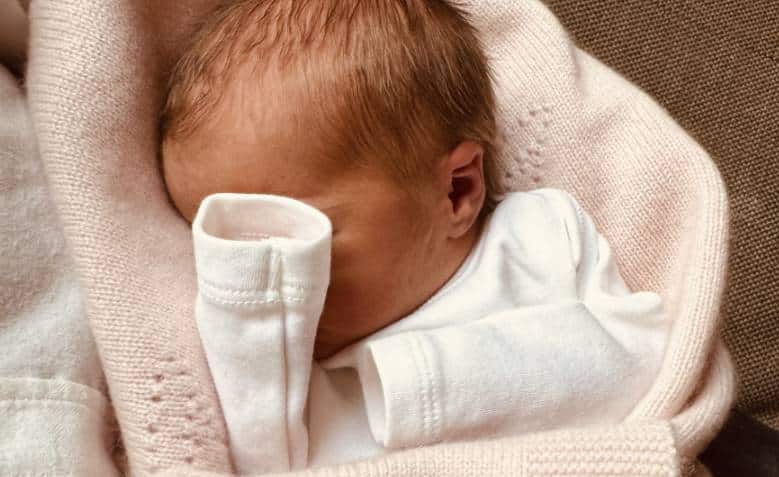Share
Tweet
Share
Share
Princess Beatrice, granddaughter of Queen Elizabeth II, welcomed her second daughter, Athena Elizabeth Rose Mapelli Mozzi, on January 22, 2025, in London. The birth, which took place at Chelsea and Westminster Hospital, marked the arrival of the 11th in line to the British throne. Weighing just two kilograms, the baby was born premature at 12:57 p.m., requiring immediate medical care, but both mother and daughter are doing well. The name, blending the Greek goddess Athena with a tribute to her great-grandmother Elizabeth, reflects a fusion of tradition and modernity. The event, celebrated by the royal family and the public, reinforces the monarchy’s continuity amid a transitional period following Queen Elizabeth II’s death in 2022. Edoardo Mapelli Mozzi, Beatrice’s husband, was present, and the couple expressed gratitude to the medical team.
Athena’s birth comes at a time of renewal for the British monarchy, which seeks to balance its centuries-old history with the demands of a modern society. The baby, the couple’s second daughter, follows her sister Sienna, born in 2021, in the line of succession. The arrival of the new member sparked excitement among Britons, who closely follow royal events.
Key birth details:Date: January 22, 2025.Location: Chelsea and Westminster Hospital, London.Weight: 2 kilograms, due to prematurity.Succession position: 11th, after Sienna Elizabeth Mapelli Mozzi.
The celebration was marked by messages of support from royals, including King Charles III, and by public mobilization, with Britons expressing relief at the recovery of mother and daughter.
Name’s meaning carries history and symbolism
The choice of Athena Elizabeth Rose as the newborn’s name reveals a unique blend of cultural and familial references. The first name, Athena, refers to the Greek goddess of wisdom and courage, a rare choice in the royal family that suggests Beatrice and Edoardo’s intent to imbue their daughter with symbolic strength. Elizabeth is a direct homage to Queen Elizabeth II, who passed away in September 2022, whose influence remains strong in the family. The name Rose, with its delicate floral touch, adds a personal element, possibly inspired by family traditions or the couple’s preferences.
This practice of composite names is common in the British monarchy. Princess Charlotte, daughter of Prince William, also carries Elizabeth and Diana, honoring her great-grandmother and father’s mother. The decision to include names spanning generations reinforces the royals’ connection to their past, while Athena’s choice signals a forward-looking approach. The baby thus arrives with an identity that balances innovation and respect for the institution’s roots.
The name’s symbolism was widely discussed by royal experts, who noted Beatrice’s intent to honor her grandmother while introducing a distinctive element. The combination reflects the princess’s personality, known for her discretion and commitment to family values.
 Athena Elizabeth Rose Mapelli Mozz – Foto: DivulgaçãoPrematurity posed initial challenges
Athena Elizabeth Rose Mapelli Mozz – Foto: DivulgaçãoPrematurity posed initial challenges
Athena’s premature birth, weeks earlier than expected, required immediate intensive care at Chelsea and Westminster Hospital, a leading medical center in London. Weighing two kilograms, the baby was closely monitored by the medical team, who ensured her stabilization within hours. Beatrice, who had already experienced motherhood with Sienna’s birth, faced the moment with composure, supported by Edoardo and her family.
Prematurity is not uncommon in the British royal family, which has historically relied on advanced medical support. Athena’s swift recovery brought relief not only to the family but also to the public, who followed updates with interest. The quality of care at the hospital was highlighted as a decisive factor in the positive outcome.
Beatrice’s experience with prematurity resonated with many British families facing similar situations, reinforcing her image as an approachable figure within the monarchy. The episode underscored the importance of neonatal care and the resilience of mothers in challenging contexts.
Update to the line of succession
With Athena Elizabeth Rose’s arrival, the British line of succession gained a new member, now in the 11th position. The baby follows her sister Sienna, born in September 2021, and is behind figures like Prince William, his three children (George, Charlotte, and Louis), Prince Harry, and his children. Athena’s inclusion reflects the royal family’s ongoing expansion, maintaining its dynastic structure amid changing times.
The line of succession is a cornerstone of the monarchy, defining the order of who can ascend the throne. While Athena’s position is far from the top, her presence in the list symbolizes generational renewal. The inclusion of women like Athena and Sienna in the succession also highlights the monarchy’s evolution, which now recognizes gender equality in the order of succession, a change implemented in 2013.
The update to the line of succession was formally recorded, and the birth was officially announced by Buckingham Palace. Athena’s arrival reinforces the notion that the monarchy continues to renew itself, maintaining relevance in a world that values both tradition and modernity.
Warm reactions from the royal family
Athena’s birth was met with enthusiasm by members of the British royal family. King Charles III, Beatrice’s uncle, publicly expressed his joy at the arrival of his great-niece, calling the moment a source of happiness for the family. Prince William and Kate Middleton, Beatrice’s cousins, also sent heartfelt messages, celebrating the growth of the next generation.
Princess Eugenie, Beatrice’s sister, was particularly involved, closely following the birth and sharing her excitement with the family. The wave of support extended to British subjects, who took to social media to offer congratulations and relief at Athena and Beatrice’s good health. Initial concerns about the baby’s prematurity were quickly alleviated by positive updates.
This mobilization reflects the monarchy’s role as an institution that bridges emotion and tradition. Athena’s arrival, during a period of renewal following Queen Elizabeth II’s passing, was seen as a symbol of hope and continuity for the royals.
Key moments in public reaction:Social media messages of support reached thousands of interactions.Buckingham Palace issued an official statement on the day of the birth.Royal fans organized symbolic tributes in London.Beatrice’s journey in the royal family
At 36, Princess Beatrice maintains a low-profile stance within the royal family, balancing her roles as a mother and a royal. The daughter of Prince Andrew and Sarah Ferguson, she grew up in the spotlight but chose a reserved life. Her marriage to Edoardo Mapelli Mozzi in July 2020 was an intimate affair, marked by her wearing a vintage dress from Queen Elizabeth II and a historic tiara.
In addition to being a mother to Sienna and Athena, Beatrice is a stepmother to Christopher Woolf, known as Wolfie, Edoardo’s son from a previous relationship. This family dynamic showcases her dedication to roles beyond royal duties. Her close bond with Queen Elizabeth II, evident in choices like her daughters’ names, reflects her grandmother’s impact on her life.
Beatrice also engages in social causes, such as raising awareness about dyslexia, a condition she herself faces. Her journey blends tradition and modernity, making her a respected figure for her authenticity.
Recent milestones in the royal family
Recent years have brought a series of births that renew the British monarchy. Athena’s arrival is part of a sequence of events strengthening the next generation. Key milestones include:
September 2021: Birth of Sienna Elizabeth Mapelli Mozzi, Beatrice’s first daughter.April 2018: Arrival of Prince Louis, William and Kate’s third child.May 2015: Birth of Princess Charlotte, William and Kate’s second child.August 2019: Birth of Archie, Prince Harry and Meghan’s first child.
These events demonstrate how the royal family continues to grow, with each new child reinforcing family ties and the institution’s continuity. Athena’s arrival, in particular, underscores the role of women in the modern monarchy.
Curiosities about royal names
Names in the British royal family are laden with meaning, often reflecting traditions and tributes. In Athena’s case, the choice blends innovation and history. Some curiosities about royal names include:
Composite names, like Athena Elizabeth Rose, are common to honor multiple family figures.Elizabeth is a recurring name, appearing in names like Charlotte and Sienna, paying tribute to Queen Elizabeth II.Mythological names, like Athena, are rare but signal creative choices.Names like Rose or Diana often refer to grandparents or great-grandparents, keeping family memory alive.
These choices reinforce the royals’ identity, linking past and future.
Neonatal health in focus
Athena’s premature birth brought attention to the importance of neonatal care. Chelsea and Westminster Hospital, where the baby was born, is renowned for its excellence in handling complex cases. The medical team closely monitored Athena, ensuring her stabilization within hours.
Prematurity affects many families, and Beatrice’s experience highlighted the need for investment in neonatal health. In the UK, about 7% of births are premature, requiring specialized care. Athena’s recovery bolstered confidence in the British healthcare system.
By sharing her experience, Beatrice connected with mothers facing similar challenges, humanizing her image. The episode also sparked discussions about the importance of accessible medical support for all.
Monarchy’s renewal
The arrival of Athena and other children, such as Sienna, Charlotte, and Louis, symbolizes the dawn of a new era for the British monarchy. These young generations grow up under the expectation of preserving traditions while adapting to a changing world. The connection to Queen Elizabeth II, through names and values, remains strong.
The monarchy faces the challenge of staying relevant in a society that values equality and modernity. The presence of women like Athena in the succession reflects the institution’s evolution, which now recognizes gender equality in the dynastic line. The baby’s arrival is a milestone uniting history, family, and renewal.

